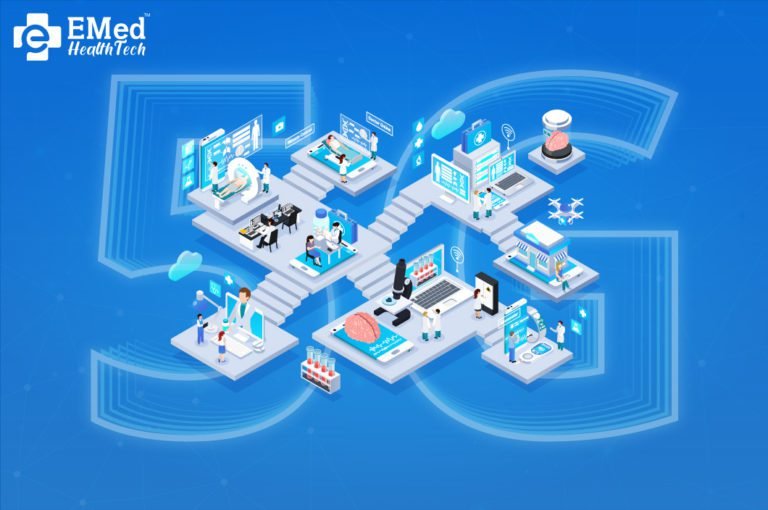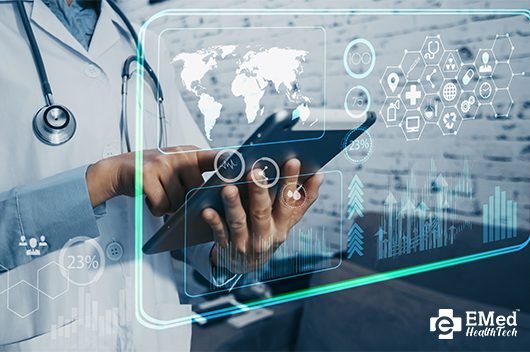Ami Kothari
If anything has made heads turn this year, it is ChatGPT. ChatGPT by OpenAI is an AI-based language model developed by OpenAI that uses deep learning algorithms to generate human-like responses to natural language inputs. The model has been trained on massive data and can understand and produce text in multiple languages.
ChatGPT is increasingly used in various industries, including healthcare, to automate and streamline processes, provide personalized support to patients, and enhance the overall quality of care. As we all stand in awe at its immense capabilities, let us look at how it is disrupting the healthcare industry and creating new trends.
Application of ChatGPT in the Healthcare industry
ChatGPT, an advanced AI language model, has immense potential to disrupt the healthcare industry. ChatGPT offers exciting opportunities for transforming the way healthcare is delivered and managed. Let’s take a look!
Providers and Care Teams
-
Improve patient health literacy
Enhancing patient health literacy by providing easy-to-understand explanations and answering patient questions leads to better-informed decision-making.
-
Improve Patient Engagement
Boosting patient engagement through 24/7 access to information and support, improving satisfaction and health outcomes.
-
Reduce staff burden
Reduce the workload of healthcare providers by automating administrative tasks such as scheduling appointments and answering patient queries, allowing staff to focus on more complex tasks and improving overall healthcare efficiency.
Pharmaceutical Companies
Pharmaceutical companies can benefit from ChatGPT in several ways.
-
Provide convenient education to HCP and patients
It can provide easy access to educational resources for healthcare providers and patients, including drug interactions, side effects, and dosages.
-
Extend the capacity of internal teams
ChatGPT can extend the capacity of internal teams by providing support in areas such as drug development and clinical trials, improving efficiency, and reducing costs.
-
Alleviate call-center volume
By providing automated support to patients and healthcare providers, ChatGPT can alleviate call-center volume, freeing up staff to handle more complex queries and improving the overall customer experience.
ChatGPT’s potential uses for physicians
-
Summarising patient records and information
ChatGPT can summarise patient records and information, making it easier for physicians to review and understand patient histories. This can include identifying key medical conditions, medications, and test results and highlighting potential concerns or areas for further investigation.
-
Transcribe patient records
ChatGPT can transcribe patient records, reducing the burden on physicians and administrative staff. This can include dictating notes and medical reports or transcribing patient interactions during telehealth appointments.
-
Enhancing clinical decision systems
ChatGPT can enhance clinical decision systems by analyzing patient data and providing real-time insights and recommendations. This can include identifying potential drug interactions or suggesting treatment options based on patient history and current health status.
Automating administrative functions
-
Improving patient education
By providing patients with personalized education and resources, chatbots and virtual assistants can improve patient understanding of medical conditions, treatment options, and medication usage.
-
Providing answers to patient FAQs
Chatbots and virtual assistants can provide patients with quick and easy answers to common FAQs, such as questions about insurance coverage, appointment scheduling, and medication usage. This can reduce the burden on administrative staff and improve patient satisfaction by providing 24/7 support.
Other Uses
-
Virtual Assistants
ChatGPT serves as a virtual assistant in the healthcare industry by providing 24/7 support and automating administrative tasks, freeing up a lot of time and resources.
-
For Marketing Strategies
ChatGPT can help healthcare organizations with marketing strategies by analyzing large amounts of data to identify patterns and trends, allowing for more targeted and effective marketing campaigns.
Challenges to ChatGPT adoption in healthcare
While ChatGPT has the potential to transform healthcare, its adoption has several challenges. Some of the key challenges include:
-
Data privacy and security
ChatGPT relies on large amounts of patient data to function effectively. However, there are concerns about the privacy and security of patient data, particularly with regard to the use of third-party vendors and cloud-based storage solutions.
-
Regulatory compliance
Healthcare is a highly regulated industry, and there are strict guidelines around the use of patient data. ChatGPT must comply with regulations such as HIPAA and GDPR to ensure the protection of patient privacy and data security.
-
Technical limitations
While ChatGPT has advanced natural language processing capabilities, it is not yet capable of understanding the full complexity of human language. It may struggle with medical jargon or regional dialects, impacting its ability to transcribe patient records or provide clinical decision support accurately.
-
Ethical considerations
Some healthcare professionals may feel that the use of AI undermines their role, while others may worry that it could lead to a reduction in the quality of care.
-
Resistance to change
The healthcare industry is traditionally slow to adopt new technologies, and there may be resistance from healthcare workers and administrators to adopt ChatGPT due to concerns about job displacement or the need for additional training.
How can EMed HealthTech implement ChatGPT in ePharmacy and other Online Health platforms?
At EMed HealthTech, we believe that the integration of ChatGPT into our ePharmacy platform has the potential to revolutionize the way customers interact with their medications and healthcare needs. Here are some of the key ways we envision implementing ChatGPT in our ePharmacy and eHealth platforms:
-
Composition identification
It can help customers identify the composition of their medications and provide information on potential interactions or side effects.
-
Alternate medicine identification
With ChatGPT, customers can identify alternative medications with the same composition as their current medication.
-
Interactions and Precautions
It can also provide customers with information on potential interactions between medications or certain health conditions, as well as necessary precautions to take.
-
Symptom analysis
ChatGPT can help customers understand the underlying cause of their symptoms and recommend appropriate medications or home remedies.
-
Ayurvedic medicine
ChatGPT can provide customers with ayurvedic medicine recipes for home remedies.
-
Lab test recommendations
It can recommend appropriate lab tests based on a customer’s symptoms.
-
Doctor Search
Customers can use ChatGPT to find nearby doctors based on their symptoms or health conditions.
-
Precautions and side effects
It can provide information on necessary precautions to take based on a customer’s symptoms or medications, as well as potential side effects.
By integrating ChatGPT into our ePharmacy and other online healthcare platforms, we aim to provide customers with a seamless and personalized healthcare experience, helping them make informed decisions about their medications and health needs. At EMed HealthTech, we provide customized healthcare software solutions with AI integration to meet the unique needs of our clients.
Contact us today to learn more about how we can help you with healthcare digital transformation.
Related posts

Digital Healthcare
10 Benefits of 5G Launch on Healthcare in India
10 Benefits of 5G Launch on Healthcare in India
Read more
Healthcare IT
How Everyone Can Win with Digital Healthcare?
Here you can know how everyone can win with digital healthcare.
Read more
Healthcare Digital Transformation
How Digital Health Can Help Developing Countries in Advancing Health System?
How Digital Health Helps Developing Countries in Advancing Healthcare?
Read more







